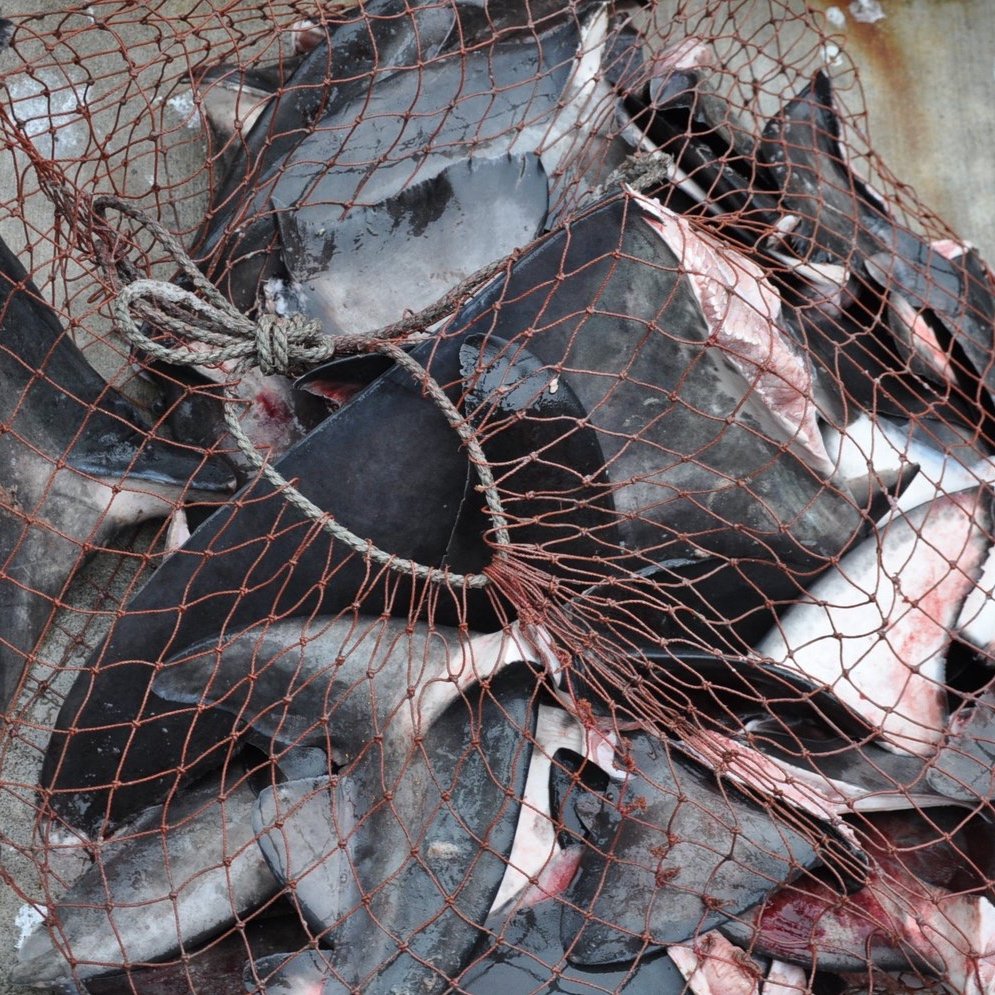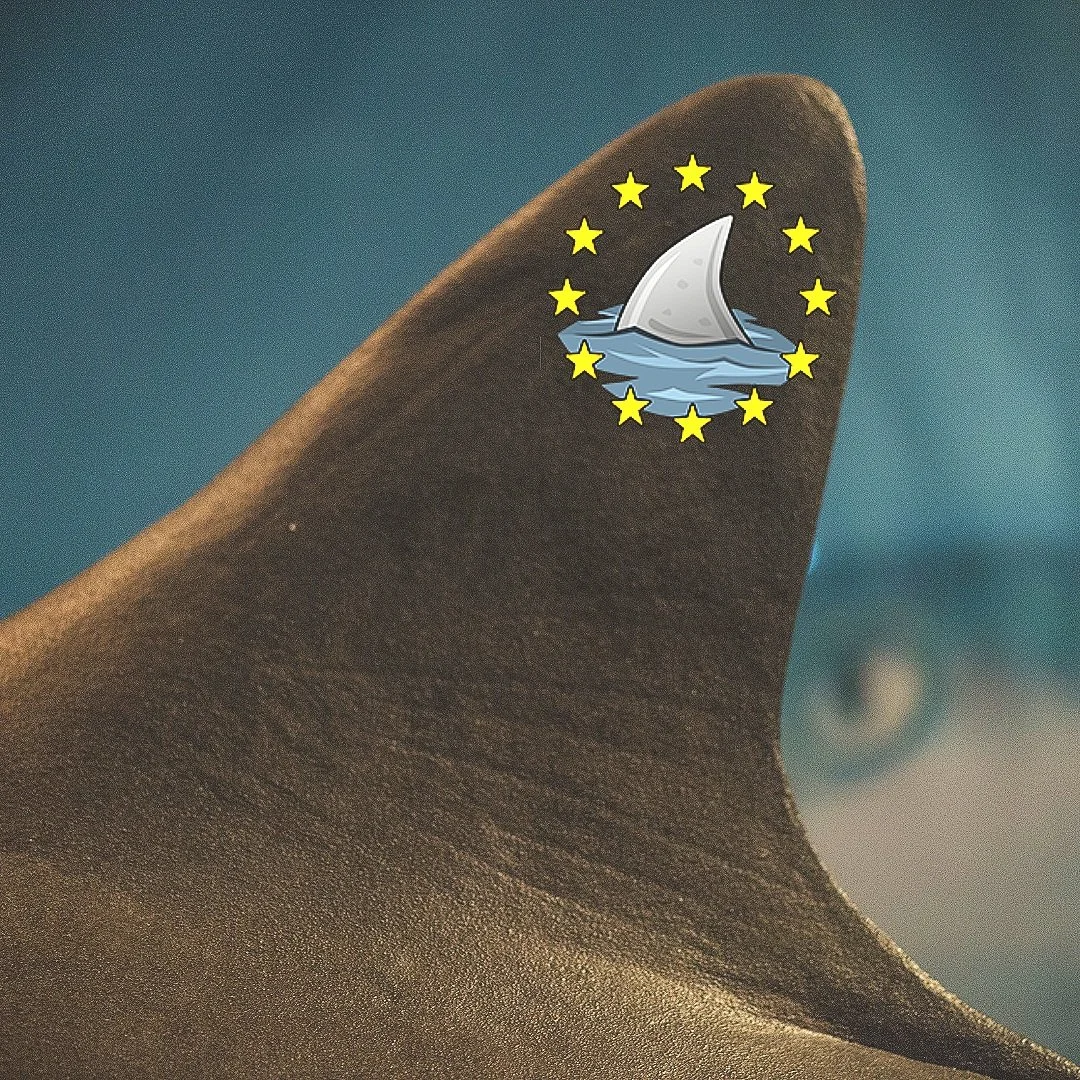#Stopfinseu
Europe’s shark fin trade
By the end of 2022, Europe verified and approved the European Citizens’ Initiative (ECI) petition “Stop Finning — Stop the Trade,” supported by over 1.1 million EU citizens and 100 NGO partners. After a year of boots-on-the-ground campaigning in Brussels, in July 2023, the European Commission issued its official response, stating that it agreed to consider further action, with the first step being an impact assessment on the environmental, social, and economic consequences of a potential European shark fin trade ban. It is our opinion that, if this is conducted fairly, encompassing all relevant sectors and not just fishery interests, the impact assessment will prove that there is no alternative to a legally binding trade ban.
It is now up to the Commission and Parliament to decide whether Europe remains part of the problem or becomes part of the solution.
sharks are misunderstood, but fin trade bans don’t have to be
“Landed whole/fins naturally attached” regulations were the reasons shark fishers switched to bringing in sharks and promoting the consumption of shark meat, not fin trade bans. This is exactly the reason why we are shifting from “fins naturally attached” to a trade ban. When fins can’t be sold or shipped, it takes away the incentive to catch sharks in the first place. Targeting sharks for their meat only is not the incentive and while the fishing industry claims this is an important market, they are also fighting fin bans because in reality they are using the meat as a secondary product. Without the income from fins, the incentive decreases immensely.
Some published papers that many are referring to as proof that fin bans don’t work actually only cover “finning” regulations, fin-to-carcass ratio regulations, shark fishing prohibitions, and CITES implementation — not fin trade bans. If you need clarification on these terms, check out our campaign page outlining the need and purpose for a European fin trade ban here.
Many fin trade bans are relatively new. Assuming that shark fishing trends from several decades are proof that current fin trade legislation isn’t working is unrealistic. There cannot be an immediate jump in shark populations. Shark numbers can take decades to recover, and population assessments are not done every year. It will take some years to interpret the landing data to see the effect. In places that have had fin bans in place for a while, the amount of fins traded legally has gone down dramatically, and cases of fin shipments have been prosecuted. In some cases, the effort to ban the trade of fins has subsequently led to even stronger protection of sharks.
REALITY check: “It’s true, shark fin bans are not a perfect solution.”
They are the best option we have available at this time. They are stronger than “finning”, “landed-whole”, and “fins naturally attached” laws, but weaker than a complete ban on shark fishing or the establishment of fully protected areas. It is easy to say that nothing except the most complete protection will work, but judging by how long and hard the road has been to get any law passed that limits fishing, this goal is extremely difficult to achieve. In the meantime, our best bet is to create laws that are easy to enforce so that the limited capacity of monitoring and enforcement in nearly every country can be maximized.
Hawaiian Senator Clayton Hee, the author of the first shark-fin trade ban established in the state in 2010 — which then became the model legislation that subsequent US states adopted, as well as federal bans including Canada and many Pacific Island Nations — highlights the importance of a fin trade ban. Hee emphasizes that “as a Senator, it is my responsibility to pass laws that work. And the existing law in place, ‘fins naturally attached’ wasn’t only not working but also enabled shark-finners to conduct their business in plain sight… Together with law enforcement leaders, including former Prosecutors and Attorneys General, the passage of this law redefined shark fins to be a commodity, to be regulated via trade and commerce statutory law. Furthermore, the terms of the bill needed to be simple, clear, and made effective through strong penalties. I can report that since the passing of the law, officers have been able to arrest everyone who has been caught with shark fins within the jurisdiction of the State of Hawaii, and for the first time, violators have been prosecuted in State and Federal US courts."



